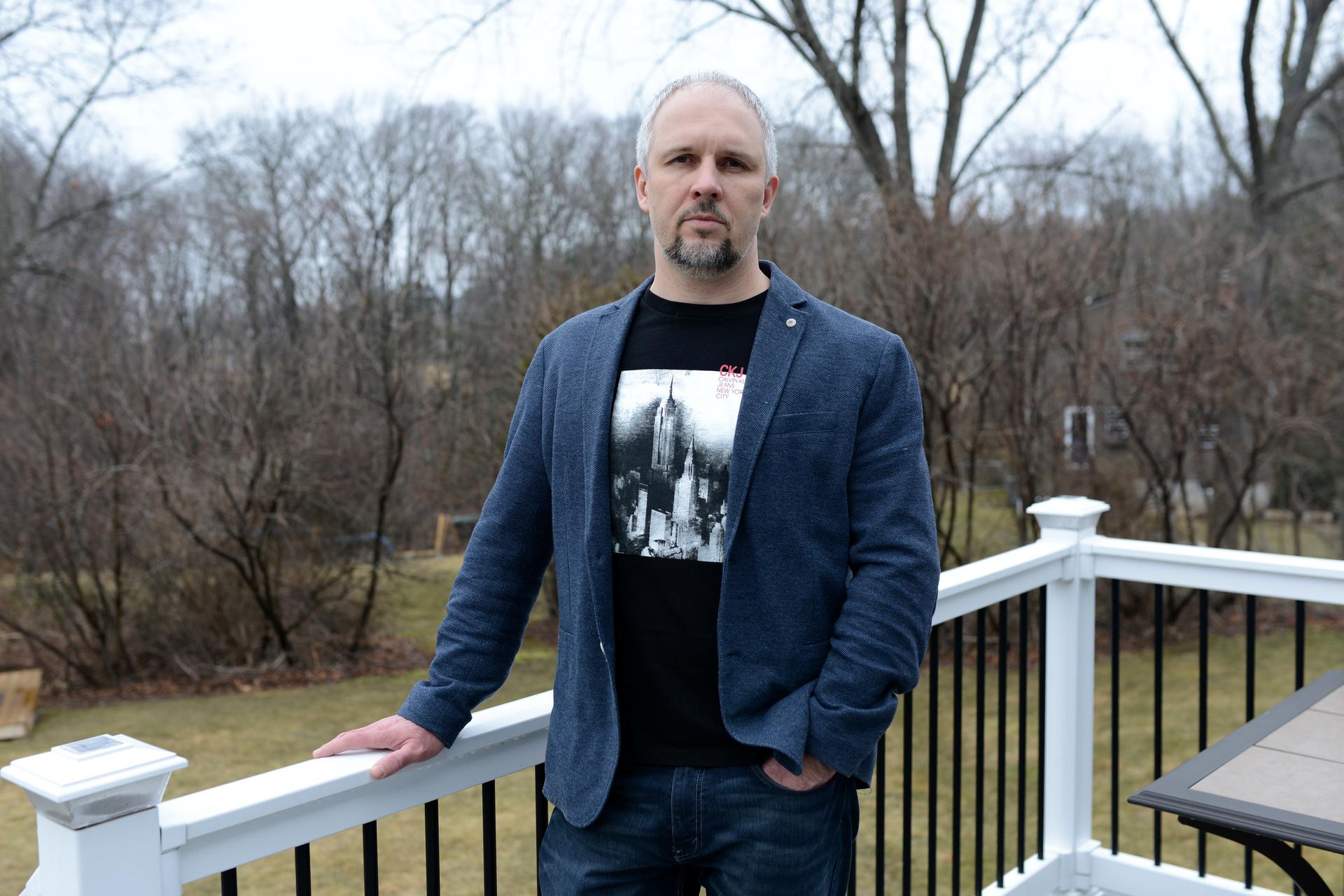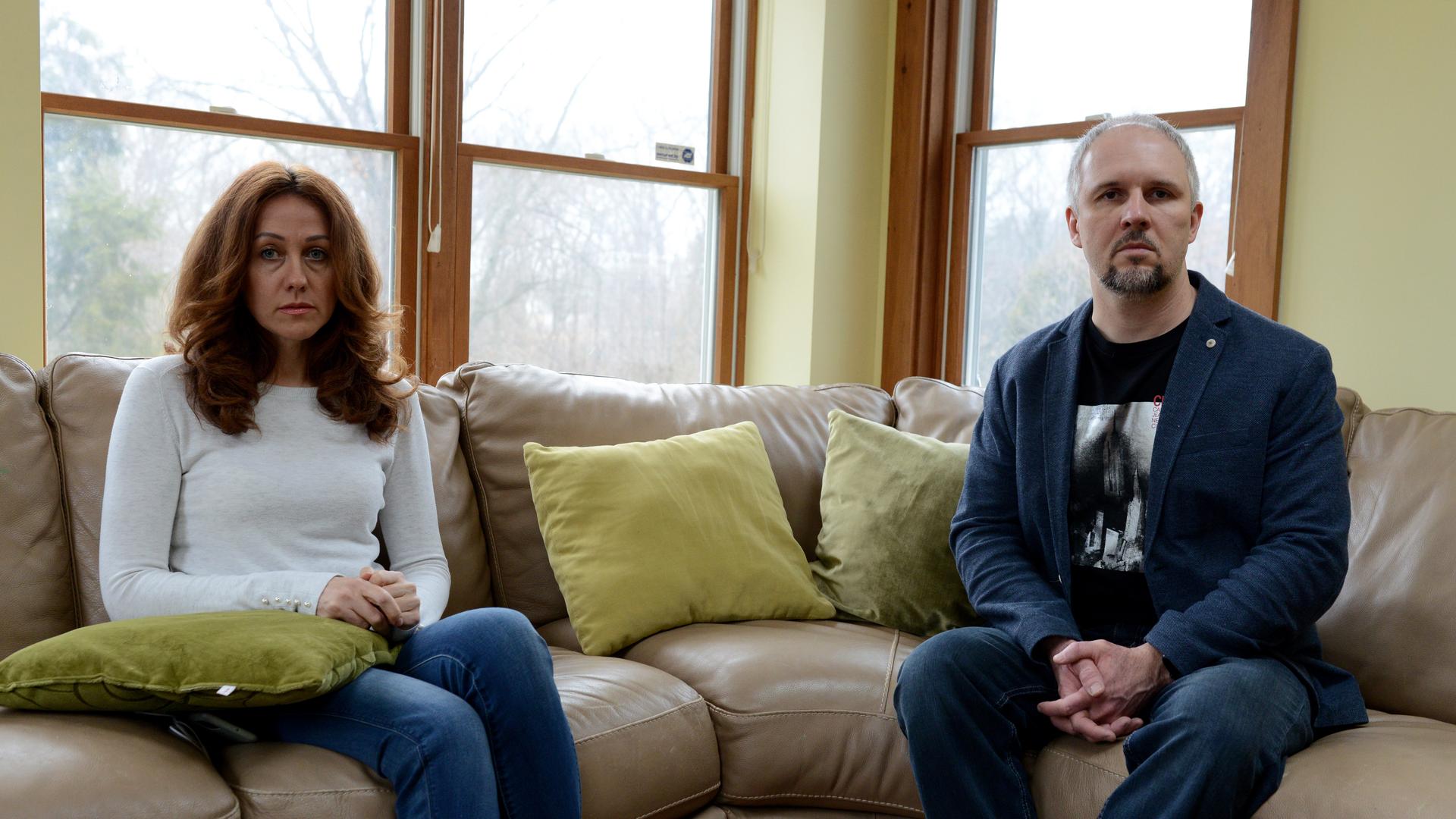Dmitry Korkin, a computer science professor at Worcester Polytechnic Institute, drove to New York City last week to pick up the newly arrived family of Vitaly Yurkiv, a Ukrainian economist who he’s been trying to bring to Massachusetts, where he lives.
Yurkiv’s wife Alina and daughter Sofiia were able to get out of Ukraine through Poland, but he is mandated to stay in the country, because he’s a man of fighting age. Korkin picked up the family at John F. Kennedy International Airport in New York.
“We’re alive, we’re not dead,” Alina said in Russian, hugging him at the gate.
Related: The new Russian diaspora finds a home in Istanbul
Korkin said he is working his connections at WPI and other colleges so that whenever Yurkiv is able to leave Ukraine, he has full-time work and can “support his family and to start a normal life.”
A normal life in the United States, and, eventually, back in Ukraine.
While the war rages on, ethnic Russian professors in the US, like Yurkiv, are trying to evacuate their Ukrainian counterparts. And the effort to find them safe havens on American campuses echoes the similar rescue of European scholars during World War II. Currently, such networking on behalf of Ukrainians is happening around the world.
“When societies lose academics and researchers, they lose the capacity for self-reflection, for knowledge-generation.”
“When societies lose academics and researchers, they lose the capacity for self-reflection, for knowledge-generation,” said Robert Quinn, executive director of Scholars at Risk Network.
He said the not-for-profit based at New York University was founded in 1999 to revive the kind of rescue operation that existed during World War II — “specifically to help scholars who are being either directly targeted, such as Jewish scholars in Nazi Germany, and later, just those who had to leave because of the scale of the conflict.”
Since then, academic exchanges have remained open even through the worst of the Cold War, said Jason Czyz, co-president at the Institute of International Education, a nonprofit established in 1919 during the Russian Revolution.
Related: A race against time to preserve Lviv’s cultural treasures
“Some of the first scholars that we rescued were fleeing the Bolsheviks, so our two countries have a long history of exchanges,” he said, noting that Ukraine, like all countries, has its own academic culture that’s essential to the fabric of society.
“If it’s safe for those academics to return to their host country, inevitably, there is a rebuilding process, a regeneration process that occurs, and we want to see those scholars find their safe haven so that they can continue their work,” Czyz added.
In that same spirit, a medical researcher in the Netherlands has created a crowdsourced spreadsheet with hundreds of academics in many countries pledging to welcome Ukrainian students and professors into their labs and to help them secure visas and, possibly, full-time job offers.
A scientist in Eastern Europe launched the Science for Ukraine account on Twitter, creating a website and calling on research organizations to help Ukrainian colleagues. So far, colleges have repurposed hundreds of open positions. Some have used existing funding to create new positions or increase the number of PhD students.
Roman Sidortsov, an energy expert born in Siberia, is among those ethnic Russian academics pooling resources to help his partner and other Ukrainian scholars evacuate by trying to find them new academic fellowships at his university, Michigan Tech — and elsewhere.
Related: ‘I have a need’: How Zelenskiy’s plea to Congress emphasized shared identity with the US
When Russian President Vladimir Putin threatened to invade Ukraine last month, Sidortsov was collaborating remotely with Tetiana Kurbatova, an associate professor of economics at Sumy State University in Ukraine.
Sidortsov, via Zoom, said they had been jointly writing a research paper on how to convert methane gas from landfills into electricity.
“We were finalizing proofs in early February, and then when the signs of war became more and more ominous, I reached out to her and she didn’t respond,” he said.
After the war broke out, Sidortsov feared for Kurbatova’s safety. For the next two weeks, he didn’t hear from her.
“I hope she’s alive,” he said. “The generation of knowledge — creation of knowledge — should not stop in that country, especially in my area of expertise, energy. It will be incredibly in demand when the country is rebuilding.”

Sidortsov finally received an email from his colleague last week saying that she had managed to escape through a humanitarian corridor while under Russian artillery fire. She was stuck in a border city in Ukraine.
WPI’s Korkin, who was born in Kazakhstan — a Central Asian country that, like Ukraine, was once part of the Soviet Union — said that the Eastern European nations are intertwined.
Related: Harsh sanctions, military support are key to Ukraine’s defense, former amb to Ukraine says
“We are all the same, especially people who were born in [the] Soviet Union.”
“We are all the same, especially people who were born in [the] Soviet Union,” he said.
That’s, in part, why he and WPI are setting aside federal funding to enroll a graduate student from Ukraine. Korkin is also trying to create a faculty position for Yurkiv, the Ukrainian economist who’s now stuck in the suburbs of Kyiv.
“I think everyone is working towards providing as much flexibility for those scientists and researchers as possible,” Korkin said. “It’s a total disaster. Now, the entire nation is lacking science, technology, advancement in those fields. This is the basis for the modern society.”
GBH’s Diane Adame contributed to this report.
